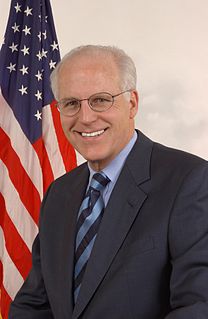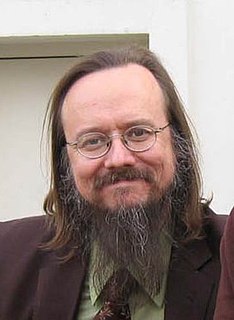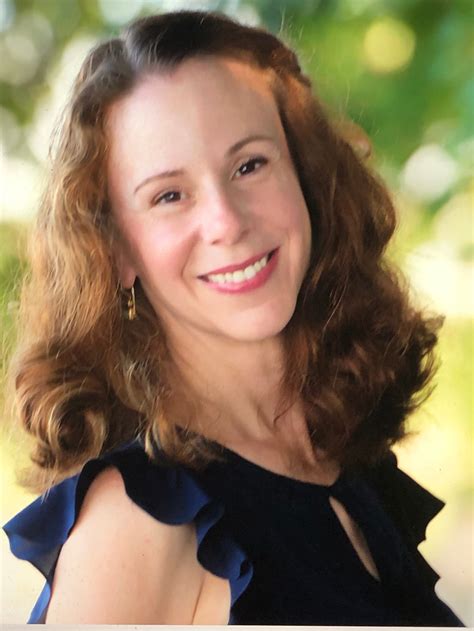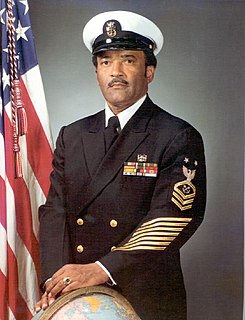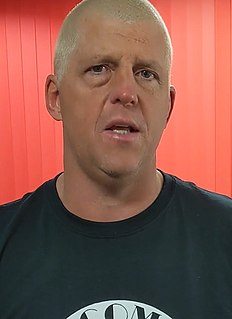A Quote by Christopher Shays
I'd like people to listen to our soldiers. They were there. They heard the alarms go off. They tasted the substance in the air. They spit up blood. They had rashes on their bodies. They got sick.
Related Quotes
Blood is very powerful. While meat is the substance that keeps our living souls in this physical reality, blood keeps our meat alive. Blood is liquid life. When blood escapes our bodies we are alarmed to the very core of our brains. It is life leaking out of us. It is frightening and makes red a profoundly intense color.
You've heard of people calling in sick. You may have called in sick a few times yourself. But have you ever thought about calling in well? It'd go like this: You'd get the boss on the line and say, "Listen, I've been sick ever since I started working here, but today I'm well and I won't be in anymore." Call in well.
I typically set at least three alarms. I have two alarms set on my iPhone, I still use a Blackberry for work, so I set my alarm on that, and then if I'm staying in a hotel, I request a wake-up call. I've never overslept - knock on wood. But I have had an instance where one of my four alarms has failed, so that's why I stand by the multiple alarms.
But in order to survive in this foreign world, I had to teach myself that love was very much like a painting. The negative space between people was just as important as the positive space we occupy. The air between our resting bodies, and the breath in our conversations, were all like the white of the canvas, and the rest our relationship- the laughter and the memories- were the brushstroke applied over time.
Sometimes I would come back from a run, and my artificial leg would have a puddle of blood from my stump. I wouldn't go to sick bay. In that year, if I had gone to sick bay, they would have written me up. I didn't go to sick bay. I'd go somewhere and hide and soak my leg in a bucket of hot water with salt in it--an old remedy. Then I'd get up the next morning and run.
Words got in the way. The things we felt the hardest--like what it was like to have a boy touch you as if you were made of light, or what it meant to be the only person in the room who wasn't noticed--weren't sentences; they were knots in the wood of our bodies, places where our blood flowed backward. If you asked me, not that anyone ever did, the only words worth saying were I'm sorry.
When I heard the learn’d astronomer; When the proofs, the figures, were ranged in columns before me; When I was shown the charts and the diagrams, to add, divide, and measure them; When I, sitting, heard the astronomer, where he lectured with much applause in the lecture-room, How soon, unaccountable, I became tired and sick; Till rising and gliding out, I wander’d off by myself, In the mystical moist night-air, and from time to time, Look’d up in perfect silence at the stars.
When our bodies are sick and people extend their sympathy, bring us soup, offer up solutions. When our minds are sick, people tend to shy away from you, be afraid, or call you outright crazy. I'm fascinated by the way society and individuals view mental illness, and most of my shorts comment on that.
I do think the public want to see politicians acting in a different way. What's brought young people into our campaign is that they were written off by political parties but they had never written off politics, and what we have is a huge number of young people, very enthusiastic and brimming with ideas. Those ideas have got to be heard.
Tell me what you will of the benefactions of city civilization, of the sweet security of streets-all as part of the natural upgrowth of man towards the high destiny we hear so much of. I know that our bodies were made to thrive only in pure air, and the scenes in which pure air is found. If the death exhalations that brood the broad towns in which we so fondly compact ourselves were made visible, we should flee as from a plague. All are more or less sick; there is not a perfectly sane man in San Francisco.
I confess, without shame, that I am sick and tired of fighting — its glory is all moonshine; even success the most brilliant is over dead and mangled bodies, with the anguish and lamentations of distant families, appealing to me for sons, husbands, and fathers ... it is only those who have never heard a shot, never heard the shriek and groans of the wounded and lacerated ... that cry aloud for more blood, more vengeance, more desolation.
Even though I knew I was inside the space shuttle getting ready to go fly, something about it wasn't completely real up until we got the call at about one minute to go, to close and lock our visors and start our oxygen flow. People often ask me, "What did it feel like right at the moment of launch?" And they're surprised when I tell them actually what I felt was relief. It wasn't like being anxious or scared or anything. It was relief because this is something I had wanted to do my whole life and now that the boosters had lit, we were on our way to go do it and nothing was going to stop us.
